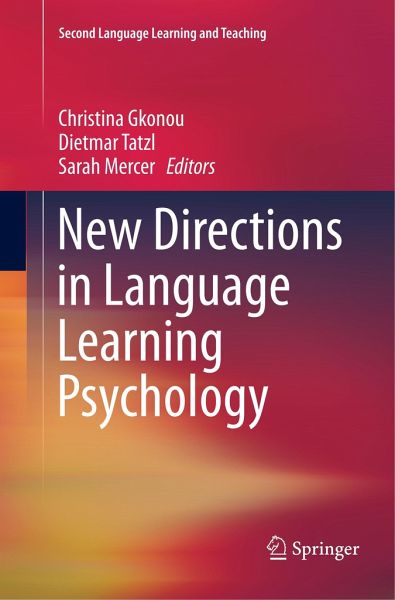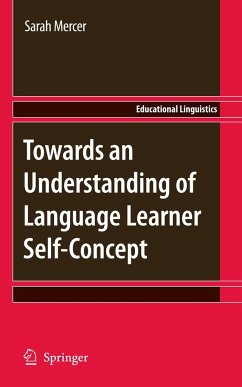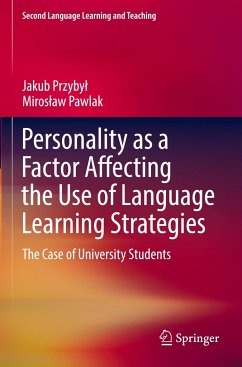
New Directions in Language Learning Psychology
Versandkostenfrei!
Versandfertig in 6-10 Tagen
76,99 €
inkl. MwSt.

PAYBACK Punkte
38 °P sammeln!
This book explores potential new directions in the growing field of language learning psychology. The individual chapters cover theoretical and conceptual developments and innovative methodological designs, while also exploring practical implications. Language learning psychology is a vibrant field of research that typically involves constructs from social and educational psychology, which it considers in terms of their relevance for the domain of language learning. The diverse theoretical and empirical chapters examine a range of familiar and lesser-known constructs, highlighting the importan...
This book explores potential new directions in the growing field of language learning psychology. The individual chapters cover theoretical and conceptual developments and innovative methodological designs, while also exploring practical implications. Language learning psychology is a vibrant field of research that typically involves constructs from social and educational psychology, which it considers in terms of their relevance for the domain of language learning. The diverse theoretical and empirical chapters examine a range of familiar and lesser-known constructs, highlighting the importance of taking into account both learner and teacher psychologies, and recognising the complexity, dynamism and situatedness of psychological constructs, as well as the value of employing diverse research methodologies. It is hoped that these 'new directions' concerning populations, constructs and theoretical and methodological frameworks will pave the way for innovative future developments in this vibrant field.














